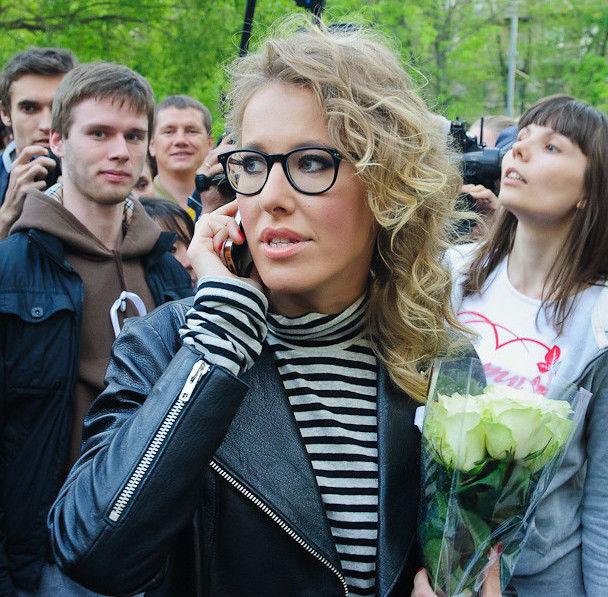Media narratives shape political opinions and outcomes
November 23, 2019
Kim Kardashian, Ellen DeGeneres, Meryl Streep, Angelina Jolie, Beyoncé and Oprah Winfrey could run for the Presidency. However, none of these individuals have expressed interest.
The lack of females in U.S. politics raises questions around gender equality, and was the subject of an International Brown Bag Lecture at the International House on Nov. 20. The presentation was given by Maria Stover, professor and chair of the Washburn mass media department.
“There’s just not that many women in American politics,” said Stover. “We’re in the 21st century and the largest gender gap in this country is still in U.S. political professions.”
Stover believes the gap remains because of media narratives around female figures, expressing that the way a woman dresses is more important than their political agenda.
“It’s always about a woman’s appearance,” said Stover. “Women in politics are seen as competent or likeable – but never both.”
Western media’s coverage of Ksenia Sobchak, a female TV journalist who was a candidate in the 2018 Russian Presidential election, came down to dubbing her “Russia’s Paris Hilton,” a prime example of condoning harmful narratives regarding a female’s physical appearance.
Stover mentioned that, according to scholars, it could take a major female superstar celebrity to shift the media narrative about female appearance and use it to an advantage.
“This could work to Oprah’s advantage if she were to run for the Presidency,” said Stover. “It would make for a very interesting case study.”
The main focus of the presentation was the overlap between celebrities and politics.
Stover presented two major routes to political significance made by celebrities. The first was described as “politicians as celebrities”, which includes the examples of Bill Clinton and Barack Obama.
“Many scholars look at Barack Obama as an individual that fully realized the potential of Twitter and someone who used it for political advocacy,” said Stover. “Soon after pretty much the entire congress here in the state of Kansas said ‘OK, we need Twitter accounts. It’s not about broadcasting, it’s about connecting with the people.’”
Stover shifted her focus to cultural studies with the understanding that fame and celebrity status is a manufactured process.
“Fame does not result from achievement but from a construction of some sort of public personality,” said Stover. “This is where the media equation comes into place.”
According to scholars, the manufactured process is a three-step process: mediatization of politics, personalization of politics and then rise of populist politics.
Mediatization refers to the ability of politicians to utilize social media platforms to benefit themselves during a campaign.
Stover presented personalization as the connection between the public and politicians through the use of a Blog, personal website, Twitter account, Facebook, etc.
“Personalization has also been described as a process in which media cover a lot more of the personal lives of politicians,” said Stover. “Their public personas that in some instances media spend so much time literally obsessing on their private or personal life.”
Media uses the excuse that they are humanizing a subject that will ultimately result in votes toward election.
Politicians use this process to increase their public personas among voters in what Stover deemed the “rise of the charismatic leader.”
“The professions require individuals to construct public personalities favorable to their audiences, or voters,” said Stover. “Both professions rely exclusively on emotional appeal rather than rational appeal.”
Stover presented four common typologies of celebrities as politicians: Long-term celebrity advocates, celebrity endorsers, celebrity politicians and superstar celebrities.
One of the typologies has risen just recently, as President Trump has created the superstar category.
“Scholars are still trying to figure out the Donald Trump phenomenon,” said Stover. “Donald Trump doesn’t want to be a politician – he does not behave as a politician – he’s a celebrity.”
Stover mentioned President Trump’s obsession over television ratings, arguing that looking at politicians as celebrities allows viewers to further comprehend behavioral patterns.
“He wants to be the center of attention,” said Stover. “We’ve seen President Trump validate himself based on ratings.”
However, Stover seriously believes that celebrity status will play a major role in the future of U.S. politics.
“Celebrity politicians that trend is just a legitimate part of the complex ways in which political representation functions in modern democracy,” said Stover.
The presentation finished with Q&A.
Baili Zhang, director of international programs at Washburn University, presented a question regarding America’s ability to elect a female candidate.
“I would love to see a female President of the United States,” said Stover. “There’s a lot of fictional shows of Presidential women… but I’d like to see a female president in real life.”
Zhang agreed.
“As a male, I’m ready,” said Zhang.
Stover just wonders if the narrative will ever change into one that promotes the reality of electing a woman for the oval office.
Edited by Adam White, Jason Morrison, Jackson Woods



